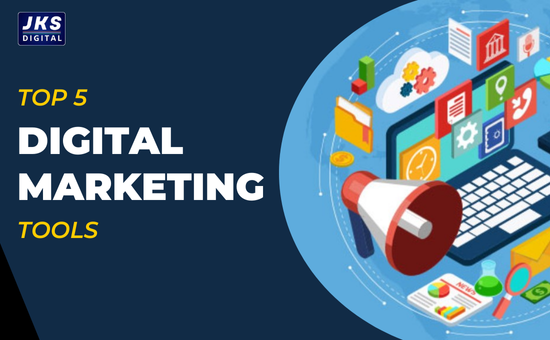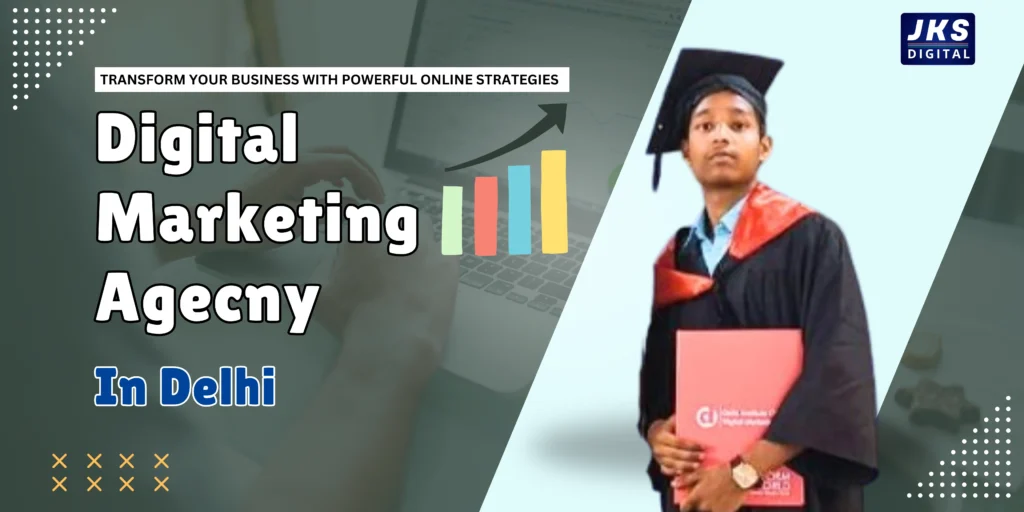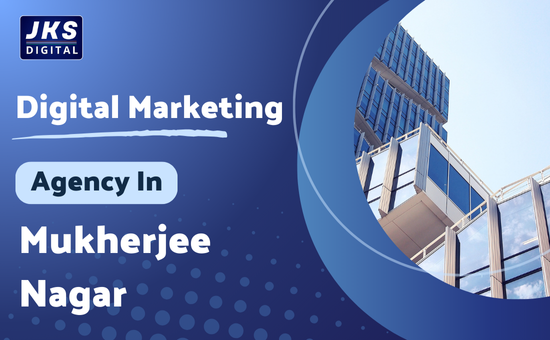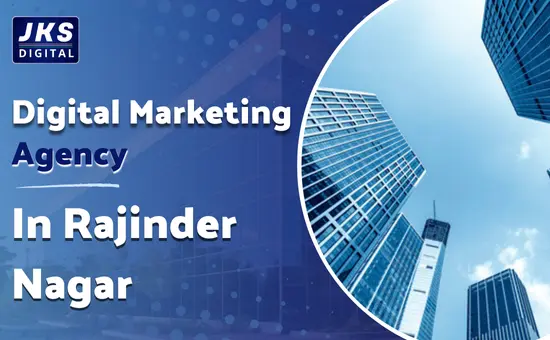Email Marketing: In the digital landscape, email marketing remains a powerful tool for businesses, especially for digital marketing agencies. With a well-planned email strategy, businesses can engage their audience effectively, nurture leads, and drive conversions. This article provides a complete guide to using email marketing, discussing the benefits and challenges of the strategy while offering actionable insights.
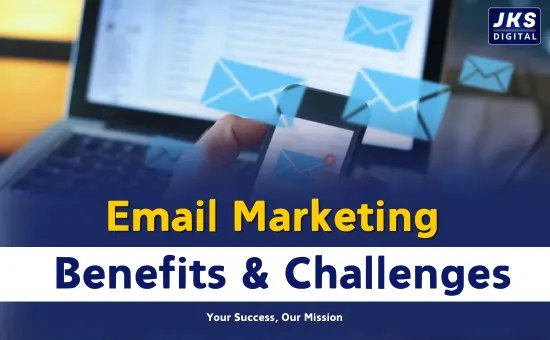
At JKS Digital, a leading digital marketing agency in Delhi, we recognize that effective email marketing can help businesses establish meaningful connections with their target audience and stay competitive in a dynamic marketplace.
Table of Contents
- Introduction to Email Marketing
- Key Benefits of Email Marketing
- Challenges of Email Marketing
- Best Strategies for Effective Email Campaigns
- Overcoming Email Marketing Challenges
- Conclusion
1. Introduction to Email Marketing
Email marketing involves using emails to communicate directly with a target audience, promoting products or services, sharing updates, or simply engaging customers with valuable content. Unlike other forms of digital marketing, email marketing provides a personal touch, allowing brands to reach users directly in their inbox.
For a digital marketing agency in Delhi like JKS Digital, email marketing provides an opportunity to showcase expertise, build brand loyalty, and improve lead generation. Given its high ROI, many businesses choose email as a core element of their marketing strategy.
2. Key Benefits of Email Marketing
Let’s look at some significant advantages of integrating email marketing into a digital marketing strategy:
2.1 High Return on Investment (ROI)
Email marketing has one of the highest ROIs among all marketing channels. According to studies, businesses can expect an average return of $42 for every $1 spent on email marketing, making it a cost-effective way to drive sales and engage customers.
2.2 Enhanced Customer Engagement
Emails allow you to communicate directly with customers, delivering personalized messages that foster engagement. By segmenting your audience, you can tailor content to match their interests, making your emails more relevant and increasing the chances of interaction.
Read more – Introduction to (SEO) Search Engine Optimization 2025: Complete Guide
2.3 Increased Brand Awareness
Email campaigns provide consistent exposure to your audience. Sending periodic updates, offers, and informative content keeps your brand top-of-mind, allowing customers to develop familiarity and trust with your business.
2.4 Lead Nurturing and Conversion
Through a series of targeted emails, you can nurture leads at various stages of the buyer journey. Personalized follow-up emails, product recommendations, and special offers can guide potential customers toward making a purchase decision.
2.5 Easy Tracking and Analytics
Most email marketing platforms provide analytics, helping you track open rates, click-through rates, and conversions. These insights allow you to refine your strategy, optimize future campaigns, and identify what resonates with your audience.
3. Challenges of Email Marketing
Despite its many advantages, email marketing also comes with its own set of challenges. Here are some common issues businesses face:
3.1 Maintaining a Quality Email List
Building and maintaining a clean, updated email list can be challenging. If you have inactive or invalid email addresses, it can negatively impact your open rates and deliverability. Regular list hygiene is essential for successful email campaigns.
Read more – Digital Marketing Strategies for Logistics Businesses 2025
3.2 Email Deliverability Issues
Emails that do not reach the recipient’s inbox due to spam filters or server issues are a common problem. Ensuring high deliverability requires constant monitoring and adapting to the latest best practices to avoid being marked as spam.
3.3 Content Fatigue Among Recipients
If customers receive too many emails or irrelevant content, they may lose interest, resulting in unsubscribes. Finding the right frequency and ensuring that each email provides value is crucial to avoiding content fatigue.
3.4 Compliance with Privacy Regulations
Data privacy regulations like GDPR (General Data Protection Regulation) require businesses to take special care in managing user data. Compliance can be complex and requires a deep understanding of the regulations to avoid legal issues.
3.5 Personalization and Segmentation Complexity
While personalization and segmentation can significantly boost engagement, they require a good understanding of customer preferences and behaviors. Gathering and analyzing this data is time-consuming and may require advanced marketing tools.
Read more – Digital Marketing Services in Rajouri Garden: JKS Digital
4. Best Strategies for Effective Email Campaigns
To maximize the effectiveness of your email marketing campaigns, consider the following strategies:
4.1 Define Your Goals
Identify what you want to achieve with your email campaigns—whether it’s lead generation, brand awareness, or customer retention. Setting clear goals will help you create focused content and measure success accurately.
4.2 Build and Segment Your Email List
Create segments based on customer preferences, purchase history, or other relevant criteria. By doing so, you can send tailored content that resonates with each segment, increasing engagement and conversion rates.
4.3 Create Compelling Subject Lines
The subject line is the first thing recipients see and has a significant impact on open rates. A catchy, relevant, and concise subject line will encourage recipients to open your email and engage with the content.
Read more – Traditional Marketing vs. Digital Marketing: Choosing the Right Strategy for Your Business
4.4 Personalize the Content
Use customer data to create personalized messages. Address recipients by name, and use dynamic content to show product recommendations, reminders, or offers relevant to their past behavior.
4.5 Optimize for Mobile Devices
Most users check emails on their mobile devices. Ensuring that your emails are mobile-friendly will improve user experience and increase the chances of your email being read.
4.6 Conduct A/B Testing
A/B testing can help you determine what resonates best with your audience. Experiment with different elements, such as subject lines, call-to-action buttons, and content types, to improve the effectiveness of your campaigns.
4.7 Include a Clear Call-to-Action (CTA)
Every email should have a clear call-to-action that directs recipients to the next step. Whether it’s to visit your website, make a purchase, or download a resource, a strong CTA is essential for conversions.
5. Overcoming Email Marketing Challenges
To counter the common challenges of email marketing, here are some solutions that can help:
5.1 Regular List Maintenance
Regularly clean your email list to remove inactive or unengaged contacts. Encourage users to update their preferences to receive more relevant content, which can improve engagement and deliverability.
5.2 Improve Deliverability with Quality Content
Avoid spammy language and ensure that your emails are informative and valuable to the recipients. Keeping your emails relevant and respecting your audience’s preferences can enhance deliverability rates.
Read more – Most Popular Strategies to Increase Blog Views
5.3 Use Automation for Personalization
Leverage email automation tools to send personalized messages based on user behavior. Automated workflows, such as welcome sequences and abandoned cart reminders, can improve engagement and streamline lead nurturing.
5.4 Compliance with Data Privacy Regulations
Stay informed about data privacy laws and ensure your practices align with them. Be transparent about data usage, allow users to opt out easily, and collect only the necessary information.
6. Conclusion
Email marketing is a powerful and versatile tool, but it requires careful planning and execution to realize its full potential. For a digital marketing agency in Delhi like JKS Digital, leveraging email marketing can enhance client relationships, drive conversions, and build brand authority.
By understanding the benefits and challenges associated with email marketing and implementing the strategies outlined in this guide, businesses can effectively reach and engage their target audience. With a well-crafted email marketing strategy, companies can foster customer loyalty, increase brand visibility, and achieve sustainable growth.

